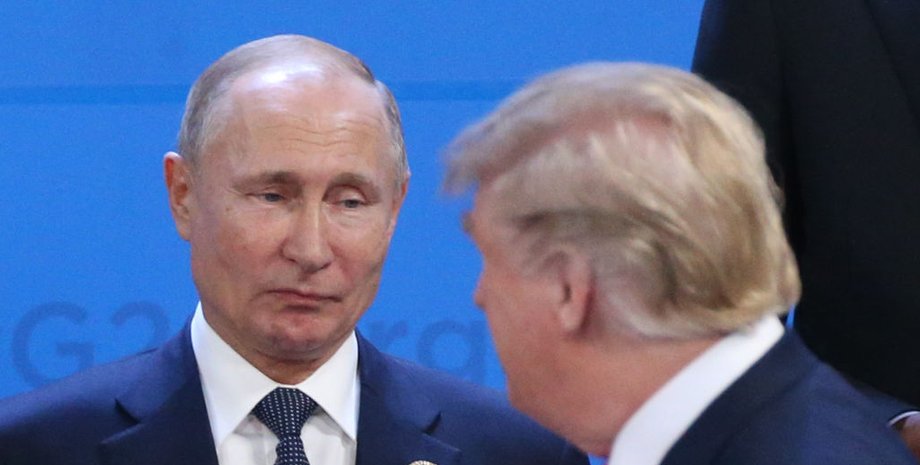
 By Eliza Popova
By Eliza Popova
After the Kremlin refused to cease fire, and the summit of Donald Trump and Vladimir Putin in Budapest was canceled, according to the journalist, a gloomy prospect began to emerge that Russia's war against Ukraine will continue for many more years, writes The Wall Street Journal.
Yaroslav Trofimov's article notes that if Ukrainian President Volodymyr Zelensky agrees to Putin's demand to give up strategic cities in eastern Donetsk region in exchange for a ceasefire that is unlikely to last long, he will face protests inside Ukraine. At the same time, due to the change in the nature of hostilities associated with drones, neither side will be able to take control of large areas.
Trofimov quotes a former senior member of the Zelenskyi administration as saying that the war with Russia is likely to continue for many years, as both sides have the ability to continue fighting, and will end either with the collapse of the Russian Federation or the disappearance of an independent Ukraine. The article notes that there will be a point in January 2026 when Russia's full-scale war against Ukraine will last longer than the Soviet Union's war against Nazi Germany.
This is an important psychological marker, because the Russian dictator is trying to present the war against Ukraine as a repetition of the war against the German Nazis. At the same time, the advance of the Russian occupiers is extremely slow — since November 2022, Russia has been able to conquer only 1% of Ukraine at the cost of more than a million dead and maimed Russian soldiers, the author notes.
In addition, the development of the Ukrainian long-range drone industry is rapidly changing the balance of power. "During the time of the tsars or Stalin, Russia's great power was that it was so large that it could always simply absorb invading armies. Now that Ukraine has the ability to penetrate so deep into Russia and hit various parts of its infrastructure, that immensity has become a vulnerability," said retired Lt. Gen. Ben Hodges, former commander of the US Army in Europe.
No air defense system can cover all these potential targets. The Russian oil and gas industry, which is the main source of income for Putin, turned out to be particularly vulnerable to Ukraine's long-range strikes. There are 25 to 30 "extremely sensitive points" in western Russia, according to Tamas Pletser, a regional oil and gas analyst at Erste Group in Budapest. "If you can bomb them, it's the end of Russia," he told the publication.
Meanwhile, Russia is attacking Ukraine's infrastructure, especially the power grid. The goals of the aggressor country remain the same as four years ago — the establishment of a puppet regime in Kyiv and the annexation of a large part of the country, Trofimov states. This week, Russian Foreign Minister Sergey Lavrov said that a ceasefire on the terms proposed by Russia is unacceptable because it "will leave a huge part of Ukraine under the power of the Nazi regime.
" And the chairman of the Munich Security Conference, who was the ambassador to Washington, Wolfgang Ischinger, told the WSJ that ending the war without achieving its main goal is politically dangerous for Putin. "To give up war and accept a ceasefire is very difficult for someone who started a war that has resulted in a very large number of casualties. This person will need to consider what the mothers of the dead soldiers will say," he said.
At the same time, Ischinger believes that the longer the war lasts, the worse the negative reaction to it will be in Russia. "We continue to wait for the political collapse of Russia, as it happened to Germany in 1918, when it lost the war, despite the fact that at that time there was not a single enemy soldier on German soil. This collapse is not happening now.
But sooner or later such things always happen," said Russian economist Konstantin Sonin, who is now a professor at the University of Chicago's School of Public Policy. Oleksandra Prokopenko, a research fellow at the Carnegie Russia Eurasia Center in Berlin, who was an adviser to the Russian Central Bank until 2022, told the WSJ that the Russian economy remains relatively stable, but that it cannot last forever. "It's not that they have run out of money.
But they will no longer be able to finance the situation in traditional ways, through taxes, through surgical spending cuts. They will no longer be able to maintain the illusion that nothing significant is happening," she explained. According to Prokopenko, possible ways for Russia to increase money printing, stimulate inflation, sharply reduce social security and replace the current system of recruitment of volunteers to participate in battles in Ukraine with forced mobilization.










All rights reserved IN-Ukraine.info - 2022